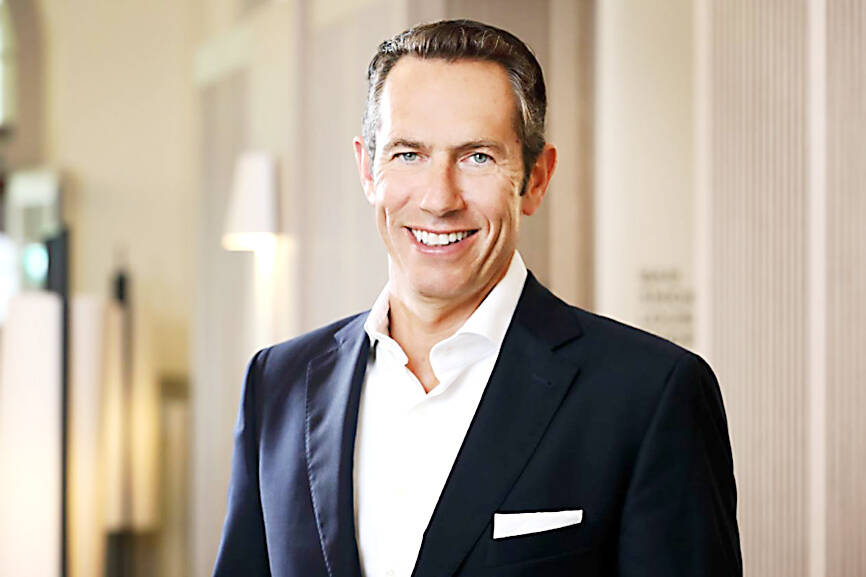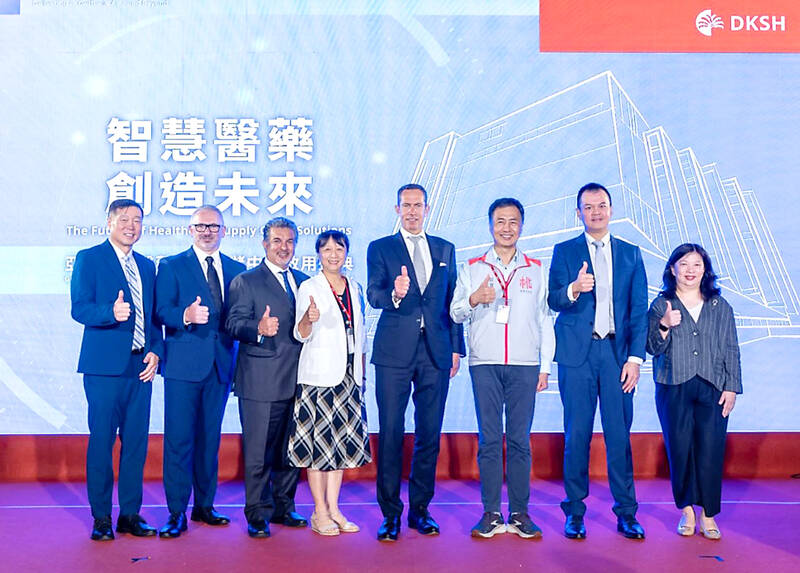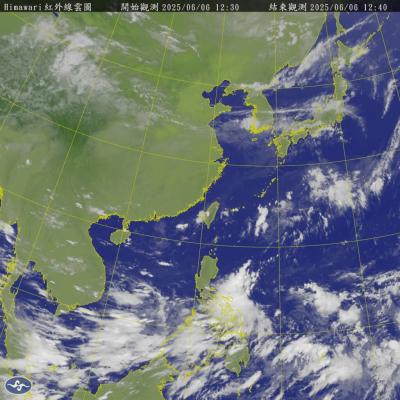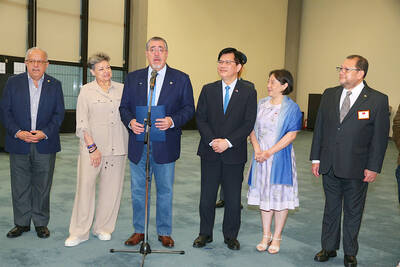DKSH officially commenced its newest distribution center in Taiwan in June, making it the company’s most advanced and automated healthcare facility, as the company expands its business here and across Asia Pacific. The company said the OP1 Distribution Center would become an important base for international pharmaceutical companies to distribute their products, over-the-counter drugs and medical devices in Taiwan. Moreover, it would be the largest automated healthcare distribution center in Asia, the company said.
Located in Taoyuan, the automated OP1 Distribution Center allows picking, storage and retrieval to be carried out by machines, which has significantly enhanced its scalability by 25 percent, DKSH said. In addition, the new distribution center is equipped with autonomous case-handling robots that handle lightweight loads and piece picking swiftly and precisely, greatly boosting its operational efficiency, the company said, adding that its cold rooms have a similar design to that of a semiconductor foundry, while its air conditioning system can monitor temperatures all day.
“We decided to build the center in 2018 to meet rising demand as the current distribution centers in Taiwan are running at full capacity,” DKSH Holding CEO Stefan P. Butz told the Taipei Times in an interview.

Photo courtesy of DKSH Holding Ltd
“It (the new distribution center) is very cool and cutting-edge. It is our largest distribution center with automated storage and retrieval system deploying case-handling robots,” Butz said. Because of the COVID-19 pandemic, the construction of the new center took more time than expected. Even so, it is a good time for the big launch this year, since the healthcare business is thriving after the pandemic, Butz said. “The COVID-19 relevant medicine and vaccines have played an important role in our business over the past few years, and now we are seeing new trends,” Butz said.
Headquartered in Switzerland, DKSH operates globally but focuses on Asia in particular. It considers Taiwan a key market in Asia, the company said. The Taiwan operations generated sales of TWD42 billion last year, mainly coming from the healthcare business, the company said. As a market expansion service provider, DKSH’s purpose is to enrich people’s lives, and offers its clients advice and strategies for international market expansion, revenue growth, market share increase, efficiency and sourcing base improvement. The company also provides on-the-ground logistics services to help clients reach their individual growth goals, delivering life-saving drugs to hospitals, and bringing high-quality products to remote villages.
DKSH's business scope covers four Business Units — Healthcare, Consumer Goods, Performance Materials and Technology — with Healthcare being the most significant section for which the firm has engaged with around 8,000 specialists to cover 16 markets, it said. As a strategic healthcare solutions partner in Asia Pacific in beyond, the Healthcare section's 575 clients are from the fields of pharmaceuticals, over-the-counter medicines, consumer health and medical device, the company said.

Photo courtesy of DKSH Holding Ltd
The Healthcare section generated net sales of Swiss franc 5.6 billion last year, followed by the Consumer Goods section with net sales of Swiss franc 3.7 billion, the Performance Materials section with net sales of Swiss franc 1.5 billion, and the Technology section with net sales of Swiss franc 513 million, corporate data showed.
DKSH said the launch of OP1 Distribution Center demonstrates the company's dedication to delivering better value and superior service to its clients and customers with smart logistics technology, while enhancing healthcare accessibility for patients in Taiwan.
“The new distribution center will provide around 25 percent more capacity than the existing centers. Moreover, as the new facility is automated, it runs faster so you can understand that the capacity increase is in fact higher than 25 percent,” Butz said. Moreover, with increasing consideration for the environment and a firm commitment to sustainability, DKSH has installed solar panels on the rooftop of the OP1 Distribution Center, part of the company's efforts to become carbon neutral in its operations by 2030, Butz said. The solar panels are expected to generate approximately 760,000 kWh of green energy annually, thereby reducing carbon emissions by 400 metric tons per year, according to the company's estimates. The company also runs the new distribution center with a paperless processing technology as it wants to further promote sustainability in the healthcare supply chain.
Overall, the OP1 Distribution Center signals the company’s determination to become a trusted partner in the healthcare supply chain and logistics areas by providing high quality and efficient storage environment while bringing medical products to patients in Taiwan and across Asia Pacific, Butz said. “That is why we call the new distribution center ‘Jade Mountain’— to show the Taiwanese spirit,” Butz said, adding that it is the name for the whole project of construction and implementation of the OP1 Distribution Center.
With an overall capacity of 35,000 square meters, the new center has been granted certifications of Pharmaceutical Inspection Co-operation Scheme for Good Distribution Practices (PIC/GDP) by the Ministry of Health and Welfare, DKSH Taiwan said. DKSH Taiwan employs more than 1,445 specialists across various functions and supports approximately 90 international brands and more than 50,000 customers, it said.

Greenpeace yesterday said that it is to appeal a decision last month by the Taipei High Administrative Court to dismiss its 2021 lawsuit against the Ministry of Economic Affairs over “loose” regulations governing major corporate electricity consumers. The climate-related lawsuit — the first of its kind in Taiwan — sought to require the government to enforce higher green energy thresholds on major corporations to reduce emissions in light of climate change and an uptick in extreme weather. The suit, filed by Greenpeace East Asia, the Environmental Jurists Association and four individual plaintiffs, was dismissed on May 8 following four years of litigation. The

STAY AWAY: An official said people should avoid disturbing snakes, as most do not actively attack humans, but would react defensively if threatened Taitung County authorities yesterday urged the public to stay vigilant and avoid disturbing snakes in the wild, following five reported snakebite cases in the county so far this year. Taitung County Fire Department secretary Lin Chien-cheng (林建誠) said two of the cases were in Donghe Township (東河) and involved the Taiwan habus, one person was bit by a Chinese pit viper near the South Link Railway and the remaining two were caused by unidentified snakes. He advised residents near fields to be cautious of snakes hiding in shady indoor areas, especially when entering or leaving their homes at night. In case of a

A tropical disturbance off the southeastern coast of the Philippines might become the first typhoon of the western Pacific typhoon season, the Central Weather Administration (CWA) said. The system lacks a visible center and how it would develop is only likely to become clear on Sunday or Monday, the CWA said, adding that it was not yet possible to forecast the potential typhoon's effect on Taiwan. The American Meteorological Society defines a tropical disturbance as a system made up of showers and thunderstorms that lasts for at least 24 hours and does not have closed wind circulation.

DIPLOMACY: It is Guatemalan President Bernardo Arevalo’s first visit to Taiwan since he took office last year, while Eswatini’s foreign minister is also paying a visit A delegation led by Guatemalan President Bernardo Arevalo arrived in Taiwan yesterday afternoon and is to visit President William Lai (賴清德) today. The delegation arrived at Taiwan Taoyuan International Airport at 4:55pm, and was greeted by Minister of Foreign Affairs Lin Chia-lung (林佳龍). It is Arevalo’s first trip to Taiwan since he took office last year, and following the visit, he is to travel to Japan to celebrate the 90th anniversary of diplomatic relations between the two countries. Arevalo said at the airport that he is very glad to make the visit to Taiwan, adding that he brings an important message of responsibility